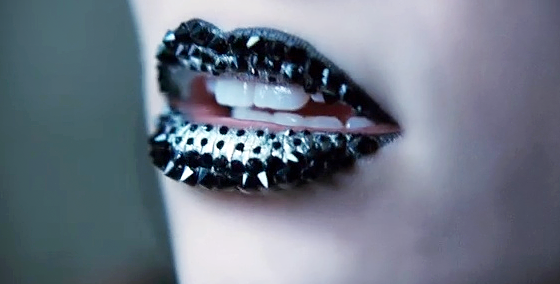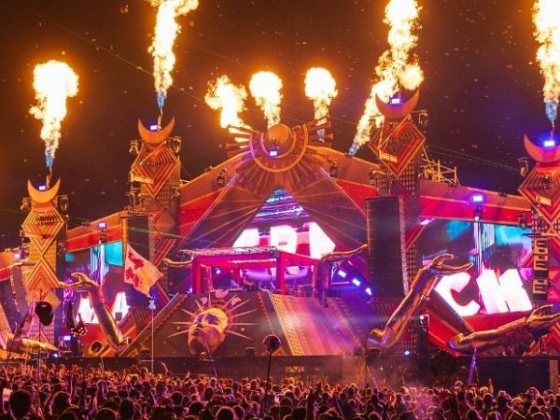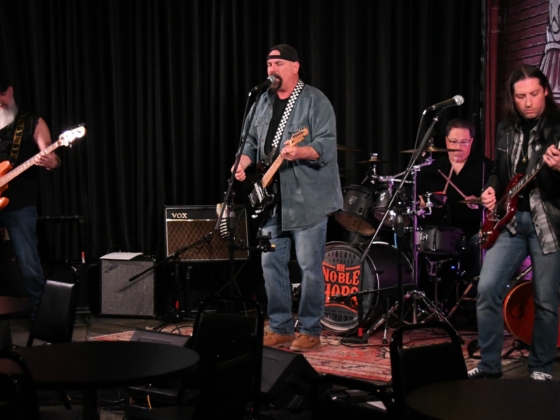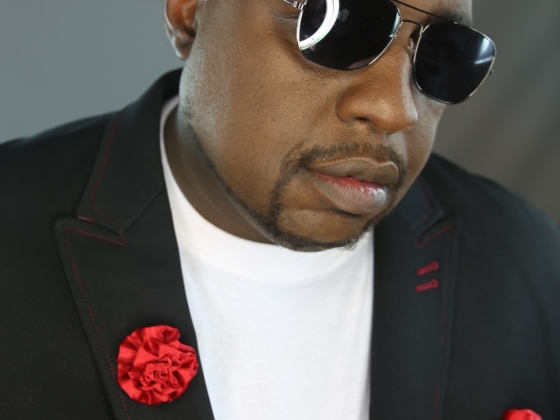Welcome back for this week's edition of Straight No Chase, your one-stop shop source for all things hip-hop here on EARMILK. This comprehensive weekly feature aims to share hip-hop based content we may have missed during the past week, while also highlighting memorable content we did cover. In addition to the recap of our best hip-hop posts, SNC also includes a Video of the Week, Project of the Week, and staff-selected noteworthy upcoming releases.
As any hip hop head worth their salt knows, these days music floods the blogosphere by the millisecond. Consequently, the landscape of hip-hop is forever changing. There are countless rappers, both established and up-and-coming, as well as renowned and budding producers and beatsmiths dropping their fair share of dope music for the listening masses. It is our mission to mine the interweb for both audio and visual gems, delivering them straight to you for your auditory consumption. But enough with the jaw jacking: let's cut straight to the chase
STRAIGHT KILLER, NO FILLER
Lili K & Lorine Chia – “Help”
Chicago songtress Lili K, known for her frequent collaborations with members of the SaveMoney collective, and Cleveland’s own Lorine Chia link up for one this soulful track. Both singers’ unique vocal styling mesh incredibly well, creating a beautiful audio tapestry that will leave listeners nearly comatose by the end. Chia brings a soulfulness that is reminiscent of Erykah Badu; while Lili K sounds like a mix of jazz and choir singers. Their dynamic together is powerful, and emphasized in the expert vocal layering found throughout the track. At some points I couldn’t tell which was singing. Finally, the production is absolutely beautiful and perfectly tailored for these two singers.
[soundcloud url="https://api.soundcloud.com/tracks/109904791" params="" width=" 100%" height="166" iframe="true" /]
OG Chess – “Harlem To Texas” (Feat. A$AP Ferg)
OG Chess has been releasing a steady stream of quality music over the past few months. This past summer he dropped his CMV 2 mixtape, which helped to bring a good amount of attention to this young Harlem rapper. This past week he let loose a track he recorded with A$AP Mob’s second in command, A$AP Ferg. “Harlem To Texas” is the perfect description for the Mob’s musical sound, and a testament to their success. One of their emcees was approached to do a song from a rapper born in the capital of Trill music—who would’ve thought that a skinny kid rapping about being pretty and purple drank could make it this big.
The song features Chess and Ferg exploring both Harlem and Texas. Both emphasize the usual the topics of women, clothes, and money, but the novelty of having these two regional representatives on the same track makes it really exciting.
[soundcloud url="https://api.soundcloud.com/tracks/57994126" params="" width=" 100%" height="166" iframe="true" /]
Deltron 3030 – “Melding Of The Minds” (Feat. Zach De La Rocha)
Deltron 3030’s sophomore album is so close, can you taste it. Well, now you can get your first free sample from the futuristic rap group, thanks to their new single “Melding Of The Minds.” The anxious, apocalyptic, demoralizing, truth dropping emcee returns and Del has lost absolutely nothing during his hiatus. He weaves an engaging story about economic corruption and social decay that is easily accessible, but deep enough to keep any conspiracy theorist busy for quite a while. Rage Against The Machine’s rapper, Zach De La Rocha joins Del on the hook, and his signature scream-rap adds the mayhem the track was attempting to convey. Overall, Deltron fans will quickly eat this up, and hopefully it will be able to satisfy their hunger pains for a little while longer.
[soundcloud url="https://api.soundcloud.com/tracks/110158287" params="" width=" 100%" height="166" iframe="true" /]
Hippie Sabotage – “Stay High”
Hippie Sabotage is a production duo hailing from California. They have a real knack for creating spacey and airy beats that come real close to crossing that electronic music line out of hip hop. On Wednesday, they released their latest song, “Stay High”. The duo beautifully sample Tove Lo’s “Habits”. Manipulating the anguish in her voice, and then adding a deep synthy hip hop beat, Hippie Sabotage manages to create a chillingly gorgeous four minute experience. It is a standout track from their stellar Soundcloud page.
[soundcloud url="https://api.soundcloud.com/tracks/111150472" params="" width=" 100%" height="166" iframe="true" /]
MondreM.A.N. – “Mc Illin” (Prod. Al Jieh)
MondreM.A.N. is a member of Main Attrackionz, the group from the Bay that made everyone research into Imogen Heap’s discography for samples. This week he released a single on his own, “Mc Illin.” Although he is doesn’t have his usual partner rapping next to him, he still retains many of the qualities that made the group so memorable. Al Jieh provides Mondre with a spacey beat, filled with psychedelic sounds. Mondre raps about the Bay Area, but also about the state of the hip hop game, and the role the internet has played in his success. While the track might not fit into traditional standards, it is really laidback and something that you can put on during a weeded out session with your friends, which is what he wanted to make. It is a pretty solid track.
[soundcloud url="https://api.soundcloud.com/tracks/110804432" params="" width=" 100%" height="166" iframe="true" /]
Danny Brown – “Side A (Old)”
Is there anything that Danny Brown can do, anything he can’t manage to rap over. Over the past three months, the few sneak peeks into his debut album that fans have been able to get their hands on, have been heavily EDM influenced. On Tuesday, he decided to show his incredible range and the amount of variety there will be on his upcoming album Old, with the release of “Side A (Old)”. Sporting a style that is closer to boom bap than his usual sound, Danny laments over the demand of some fans to go back to his older sound, instead of continuing to advance. If this track lands in an early spot on the album, it will set up a complicated antagonism between the evolution of an artist and the stagnation of fandom. No matter what though, it is a solid track and Danny delivers as always.
[soundcloud url="https://api.soundcloud.com/tracks/110797441" params="" width=" 100%" height="166" iframe="true" /]
ON THE ROCKS: WEEKLY RECAP
Here's a recap of some of the best hip-hop covered this past week on EARMILK. Take a couple of minutes to stroll down memory lane and revisit a few of tracks brought to you earlier in the week. For those who may have been snoozing at the wheel, here's your chance to play catch up:
[soundcloud url="https://api.soundcloud.com/tracks/110831711" iframe="true" /]
[soundcloud url="https://api.soundcloud.com/tracks/110942651" params="" width=" 100%" height="166" iframe="true" /]
[soundcloud url="https://api.soundcloud.com/tracks/111107527" params="" width=" 100%" height="166" iframe="true" /]
VIDEO OF THE WEEK
J. Cole – "Crooked Smile" (Feat. TLC)
A good video can tell a story without having the need of an artist’s music to be used as a crutch. To our dismay, this rule is often neglected when musicians haphazardly squish a random number of scenes together in an attempt to create a coherent visual piece (Master P’s “Make Em Say Ugh!” immediately comes to mind, but I’ve never been one to expect much from the long defunct No Limit Records.) While much of the would is still caught up in the antics of a certain twenty-something who has a penchant for twerking and swinging naked from wrecking balls, J. Cole, an artist, who’s always tried to go against the industry norms, keeps it real with the video for the aforementioned song.
Directed by Sheldon Candis and dedicated to the memory Aiyana Stanley Jones, the innocent girl who lost her life when a member of Detroit’s Special Response Team shot her during a raid, the video for “Crooked Smile” features an interesting duality between the drug deals and the DEA agent. Although they are on opposite sides of the law, they both have families to care for, regardless of how they get paid. Probably the most effective, albeit sad, part occurs during the last two minutes when the song ends and we’re left with an abysmal void of what to feel. Give this one a watch and take a moment to think about the war on drugs and how many lives it has and will continue to affect.
[youtube]https://www.youtube.com/watch?v=fzzMOMkjm8A[/youtube]
|OFFICIAL WEBSITE| TWITTER | FACEBOOK |
PROJECT OF THE WEEK
New York is one of the most thriving musical cities in the world, especially when it comes to hip-hop. Having spawned the likes of Jay Z, Nas and Eric B & Rakim, it’s clear to see that NYC is a city that bleeds hip-hop. More recently there’s been a movement that some people have been calling the ‘New New York’. The likes of Joey Bada$$, A$AP Rocky and Action Bronson have all been a part of a recent upsurge in New York emcee’s coming through. Another New York rapper starting to make a name for himself is Black Dave. The Bronx native is not only a talented lyricist, but also quite handy when it comes to skateboarding, having been an amateur skater for Zoo York. He’s not the only skater-cum-rapper in the current scene with Tyler, The Creator, Earl Sweatshirt and Yelawolf amongst others.
Now, Black Dave drops his latest project on us, Black Bart. The 15-track mixtape is a valiant effort for the young emcee, and contains a fairly eclectic mix of styles. For example, the tracks “Quit Your Day Job” and “Wadadaang” featuring Bodega Bamz, have a really loud, trap feel to them, with a beat that just makes you want to start mobbin’. Whereas “My City Made Me Do It”, which features fellow NYC rapper Smoke DZA, and “9:40”, both have smooth samples and bangin’ drums that give them a more sit down and smoke vibe.
Production for this tape comes from a few producers; most notably Shy Guy who has a total of seven credited beats on Black Bart. The kind of instrumentals on here ranges from the more toned down, relaxed tracks such as “To Da Grave”, to the more upbeat bangers like “Million Man March”, which really shows that Black Dave can be versatile when it comes to which type of track he spits on. Lyrically, he sticks true to the streets and one of his best performances comes on his collab with RiFF RAFF, “Golden Boys”. Where he spits about how he chose to pursue his dream of being a rapper when there were plenty other jobs he could’ve done that would have made his family proud.
In my opinion, Black Bart is another step in the right direction for Black Dave. Having released his last project, Stay Black, to a warm reception from fans and critics, Black Bart shows that he’s going along the right path, and with the likes of A$AP Rocky and Joey Bada$$ showing that New York artists can have a real impact on the hip-hop world, it’s only a matter of time before we see Black Dave moving onto bigger and better things.

UPCOMING RELEASES

Drake
Nothing Was The Same
- Young Money Entertainment
- September 24, 2013














